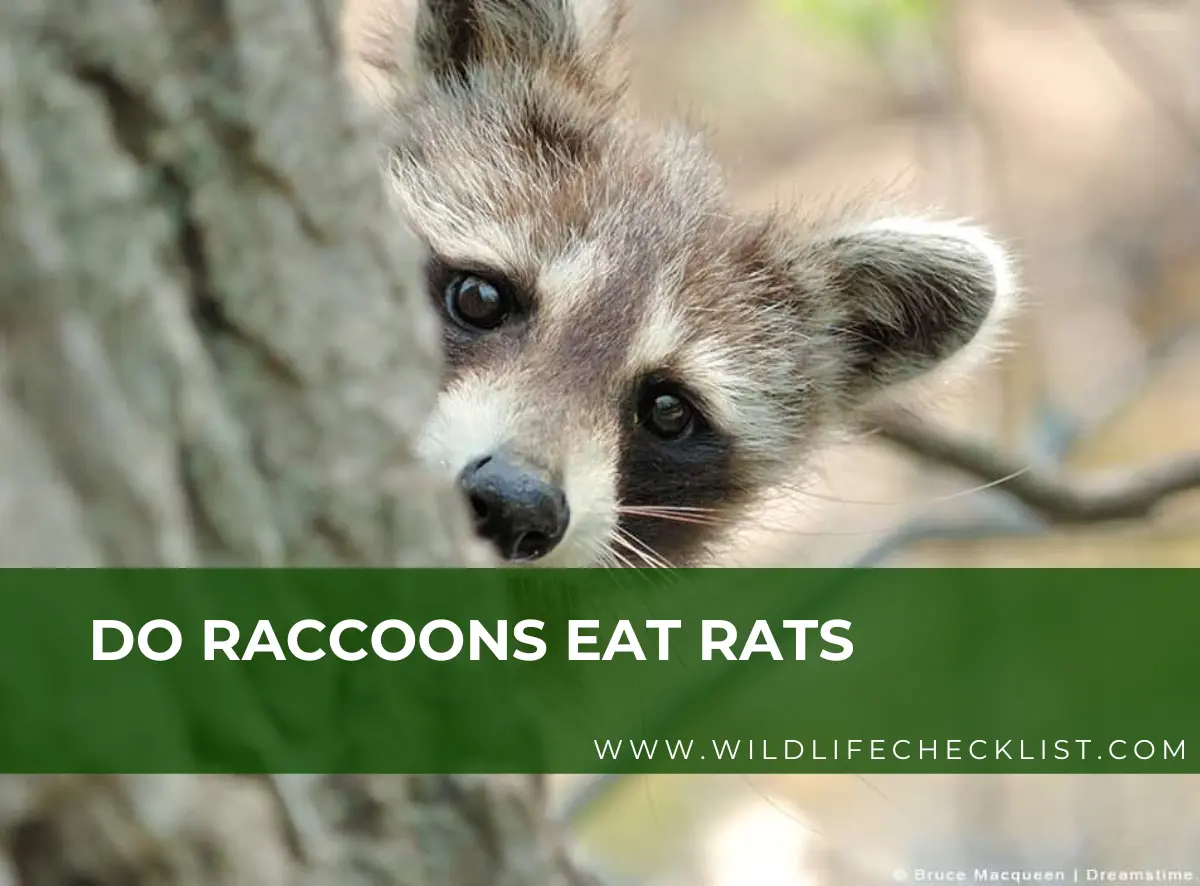Do Raccoons Eat Rats? Exploring The Predatory Habits Of Raccoons

Raccoons are wild and omnivorous animals that can feed on plants and animals at will. This is why it can be challenging for Raccoons not to get food to eat, though there are some foods they can’t eat because it affects them. On the other hand, rats have been one of the most notorious pest animals but have become food for other animals.
Contents
Do Raccoons Hunt Rats And Mice For Food?
Since we have established that Raccoons can eat any food, animal inclusive, rats also fall into the varieties of food that a raccoon will eat. But do raccoons hunt rats and mice for food? Knowing that a raccoon does not actively hunt these animals, rat-inclusive is imperative.
Racoons will only have to look for a rat or hunt for it if they are hungry, and they have no other food option, so any rat they see becomes a portion of food for them. Interestingly, raccoons catch rats for sports and eventually turn them into food.
In some cases, Raccoons do not feed on rats, even if they find and kill them, but they prefer to drag the killed rat to a secluded place that is safe from onlookers and other animals or raccoons.
If a raccoon can be a good option for controlling rats in your home, then it is worth nothing that raccoons won’t be a good option for that. This is because raccoons themselves create almost as many of the problems a rodent does and can even do more than them in some cases.
How Do Raccoons Catch Rats?
As much as rats are intelligent and cautious animals and look for ways to avoid raccoons or places where they can be preyed upon, they are still later caught.
That is why it is rare for rats to get close to a location where raccoons are, and it takes the smartest raccoons to catch a rat. So, how do raccoons catch rats?
- Hiding and observing: Just like cats, raccoons play hide and seek with rats. They hide and observe them to master and follow their paths before attacking them.
- Getting Lured with Pet Food: rats are lured by the scent of pet food, and if a rat is lured to the same place a raccoon is lured to, it can make the rat turn to prey for the raccoon if caught.
- Dragging the prey to a hidden place: on so many occasions, raccoons don’t eat rats at the same point they kill them. Instead, they take them into an isolated place safe from observers and other raccoons or animals.
It is vital to know that raccoons can be more aggressive than rats and can attack instead of running into a corner when they feel in danger. Remember that raccoons can spread deadly diseases to humans, and using them as a repellent for rats is not advisable.
Do Racoons Keep Rats Away?
This is a question that has both a yes and no answer. First, rats will always avoid wandering where raccoons reside, making it challenging for raccoons to have rats as prey. This doesn’t mean rats will still not be found in your house, destroying your property.
Since rats live in holes, sheds, garages and storerooms, it also makes it easy for raccoons to prey on them. But they will invade and destroy your properties, provided their paths don’t meet.
Second, raccoons don’t just feed on rats, as they don’t enjoy feeding on them; they only do so if it has no other alternative food source.
Can Raccoons Get Sick From Eating Rats?
Yes, raccoons can get tired or sick from eating rats. This is because Rats are known to be carriers of diseases which can be contracted through rat faeces, saliva or urine, and if raccoons come into contact with any of these, they can get sick. Some diseases that can be transmitted from raccoons are leptospirosis, Salmonella, and Hantavirus.
Leptospirosis is a bacterial infection that can cause muscle aches, fever, and nausea in animals, in which raccoons can also get infected.
Another disease raccoons can get from rats is Salmonella. It is also a bacterial infection that can lead to fever, abdominal pains, and diarrhoea in animals. It can be transmitted through contact with infected faeces of infected animals like rats. Any raccoon that comes in contact with such a rat will also be infected.
Another infection is Hantavirus, a viral disease that can cause respiratory problems, muscle aches and fever in animals. Hantavirus can be transmitted through urine, saliva, or faeces of infected animals like rats.
In short, raccoons that eat rats or come in contact with faeces or urine of an infected rat will get sick of any of the diseases mentioned earlier. Rats can also carry ticks and fleas, which are carriers of diseases that can affect raccoons. Fleas transmit tapeworms, and ticks transmit Lyme and other tick-borne diseases.
One of the ways to prevent raccoons from getting sick after feeding on rats is to find a way to control the population of rats. This can be done by eliminating the food sources and shelter that can lure and harbour rats.
Tips For Preventing Raccoons And Rats From Entering Your Home.
There are different ways by which you can prevent rats and raccoons from entering your home and destroying your properties, and since they have some similar habitats, you can try out the same preventive measures.
1. Ensure you cover all entry openings: Rats and raccoons can enter your home through small openings. So, it is essential to cover up any potential entry points. You can use wired mesh, wooden boards, netting, or newspaper to seal any opening to your home, under your deck, or in your shed.
2. Always get rid of food sources: Raccoons and rats are always attracted to food sources because they have great sensitivity to smell. So, it is vital to remove any potential food sources from your house. Keep your trash and garbage cans closed, and remember to put any pet food outside.
3. You can also install barriers: make use of barriers to keep raccoons and rats away from your house. For instance, you can use metal sheeting around the edge of your roof and the bases of trees in your house to deter raccoons without hurting other animals. Also, you can erect good fences made of thick materials such as wood to push raccoons away.
4. Make use of repellents: using repellents can keep rats and raccoons away from your property. For example, you can use hot sauce (capsaicin) or a band of repellent around the perimeter of larger areas. You can also make use of cayenne pepper and garlic. They are good repellants for raccoons.
5. Always make your property clean: keeping your property clean can help prevent rats and raccoons from entering your home. Always dispose of trash and garbage, and clean your home regularly.
By following these tips, you are on your way to preventing rats and raccoons from entering your home and causing different damages to your properties.




